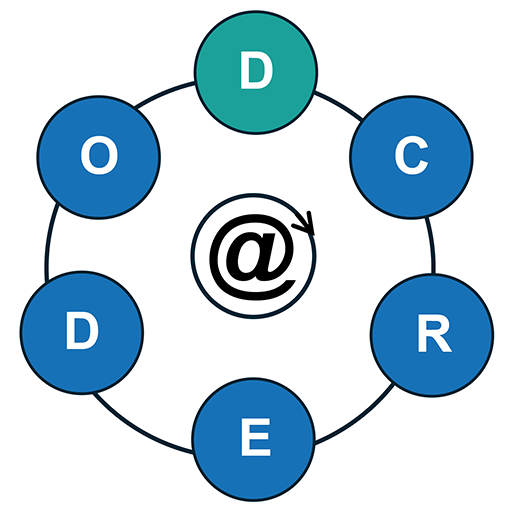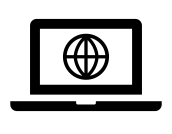In late August (23–27 August 2025), our team had the opportunity to take part in AMEE 2025, one of the world’s leading conferences on health professions education. This year, it was held in Barcelona, Spain, at the Centre de Convencions Internacional de Barcelona (CCIB) – a modern venue right by the sea.
The main theme for this year’s event was “How are educators relevant to health?”. Over five days, thousands of educators, researchers, and students came together to share their work, exchange ideas, and explore the future of teaching in medicine and the health sciences. They had the opportunity to meet, connect and inspire one another during lectures, workshops, e-posters presentations sessions, short communication sessions, peca kucha presentations and other forms of activity.
Our team attended several sessions, connected with colleagues from around the world, and even shared our own work as part of the programme.
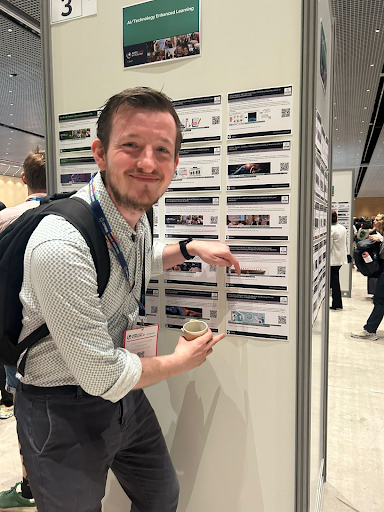
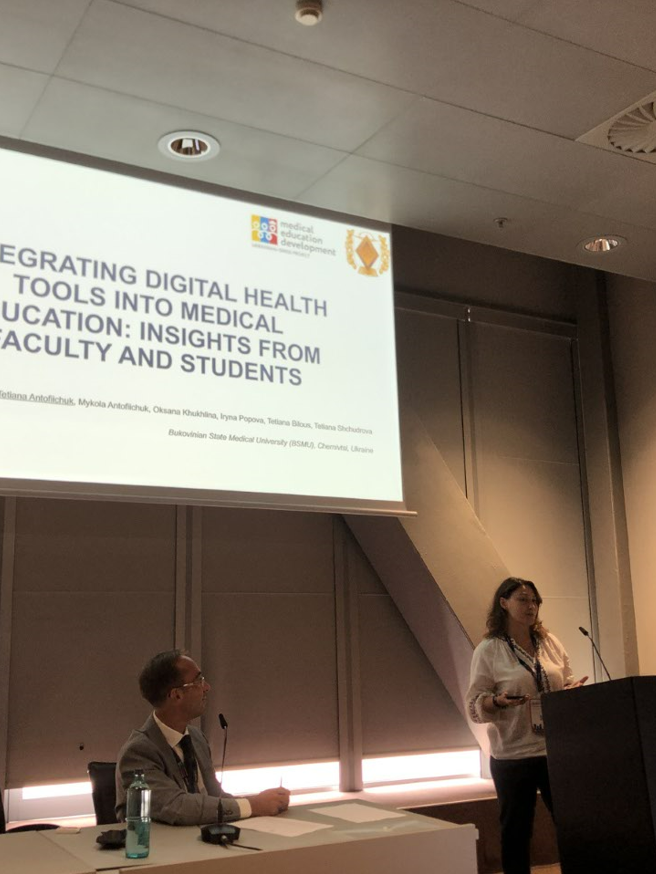
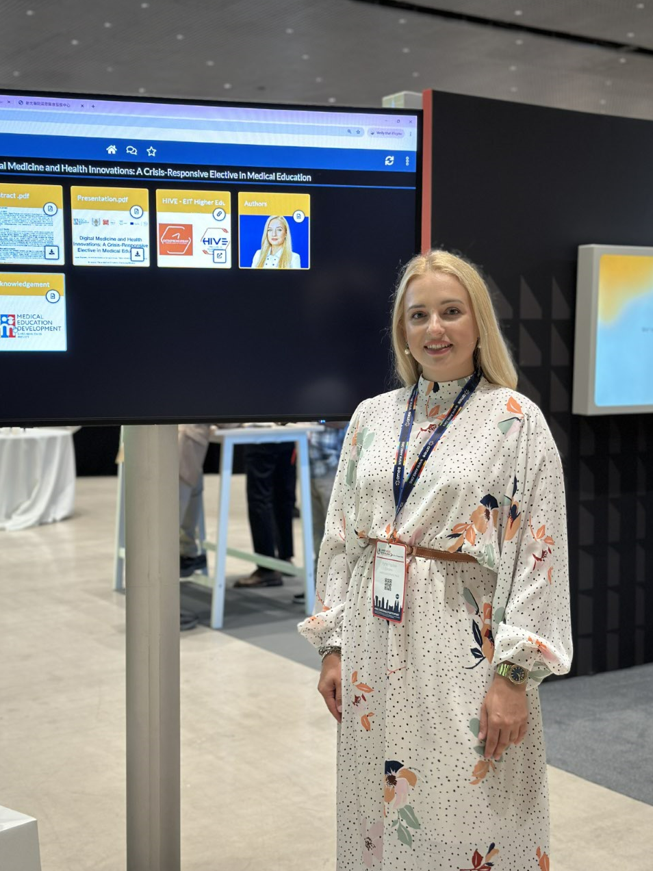
Jonas Verdonschot prepared an e-poster titled “Integration of Digital Tools into Medical and Nursing Clinical Reasoning Education: A Rapid Review” which was visible for everyone on site and online. The work reviews recent literature on the integration of digital health tools, such as AI, EHRs, and mHealth apps, into clinical reasoning education, part of our EU co-funded D-CREDO project.
Tetiana Antofiichuk contributed to this dialogue by presenting poster “Integrating Digital Health Tools into Medical Education: Insights from Faculty and Students,” based on a comprehensive needs assessment conducted at Bukovinian State Medical University.
Iryna Popova presented an e-poster titled “Digital Medicine and Health Innovations: A Crisis-Responsive Elective in Medical Education”. The work demonstrates the implementation process and efficiency indicators of the elective course. The elective course is designed for medical students at BSMU and is based on the results of the HIVE project consortium, “Innovations of Higher Education for Knowledge-Intensive Entrepreneurship.”
Tetiana Shchudrova presented a report on the topic “Digital health technologies in clinical reasoning education: needs assessment”. The work is dedicated to the results of the consortium’s work within the framework of the grant project D-CREDO – Clinical reasoning education, supplemented by digital medical technologies.
Małgorzata Sudacka presented an e- poster “Let’s improve clinical reasoning teaching with virtual patients together! Findings from an European and Southeast Asian capacity building workshop.” The presented results from another project CHAPTER SEA were emphasizing the need for international and interprofessional collaboration to improve the quality of medical education.
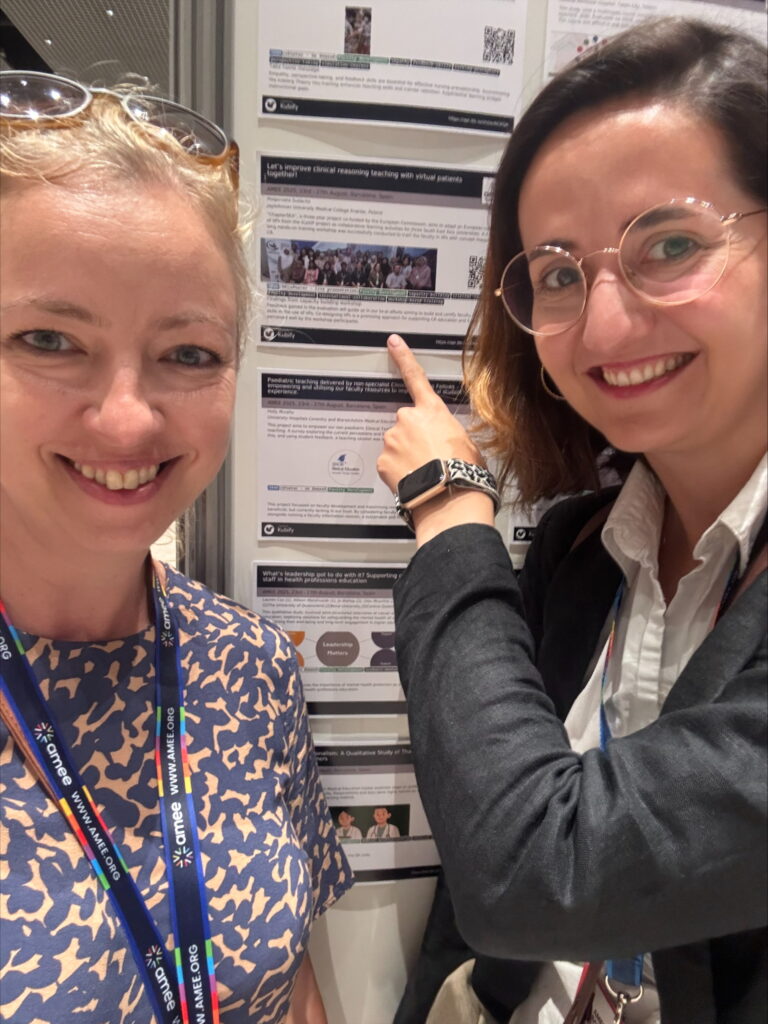
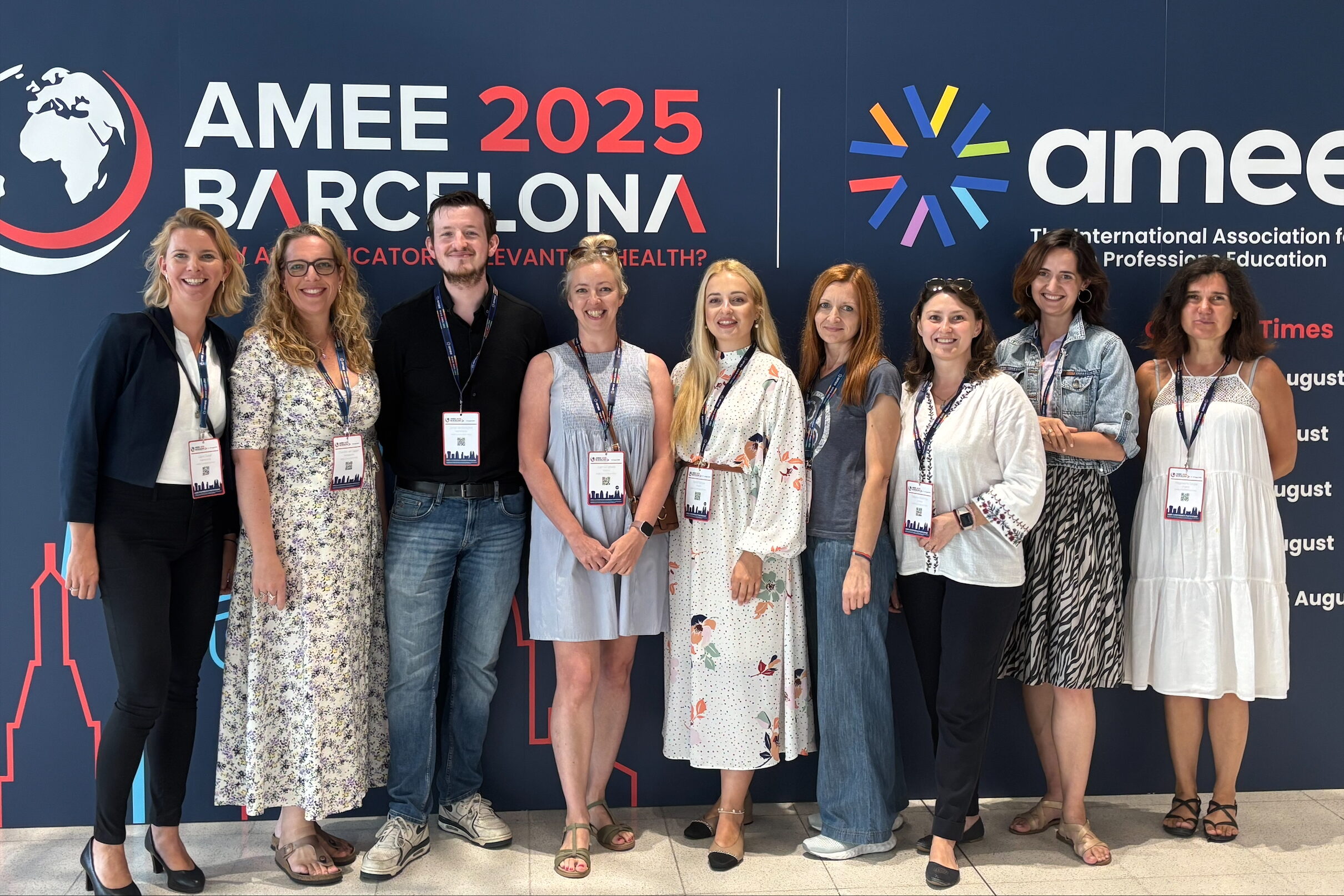
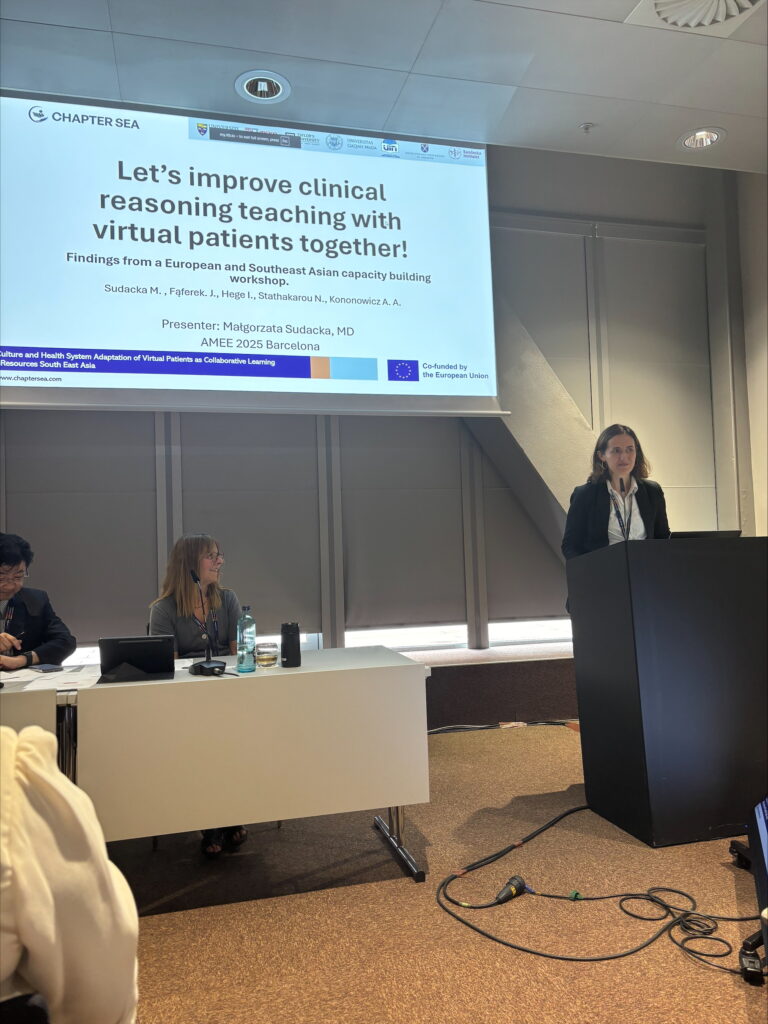
The conference showcased the diverse and far-reaching impact of education on health systems. Major themes included:
- AI & Technology-Enhanced Learning: advancing innovation in teaching and learning.
- Patient Safety & Simulation: demonstrating how educational practices directly influence clinical outcomes.
- Faculty Development: investing in educators to create lasting improvements in healthcare quality.
- Interprofessional and Team Learning: preparing future professionals for collaborative practice. Designing the interprofessional activities to strengthen the interprofessional collaboration from the very beginning.
- Equality, Diversity & Inclusivity; Sustainability & Global Health: ensuring education serves diverse populations and long-term healthcare needs.
- Humanities in Health Education: preserving empathy, ethics, and cultural competence.
- Continuous Professional Development (CPD): supporting healthcare providers in lifelong learning.
- Admission and Selection: ensuring future professionals combine academic ability with compassion and resilience.
- Surgery Education: linking educational innovation in high-stakes areas with improved patient outcomes.
AMEE 2025 reinforced a powerful message: educators are not simply transmitters of knowledge, but active architects of healthcare quality and patient safety. Every educational decision — from curriculum design and assessment strategies to supporting learners and faculty development — directly shapes the care patients receive.
It was also an important opportunity for D-CREDO consortium partners to meet in person ☺
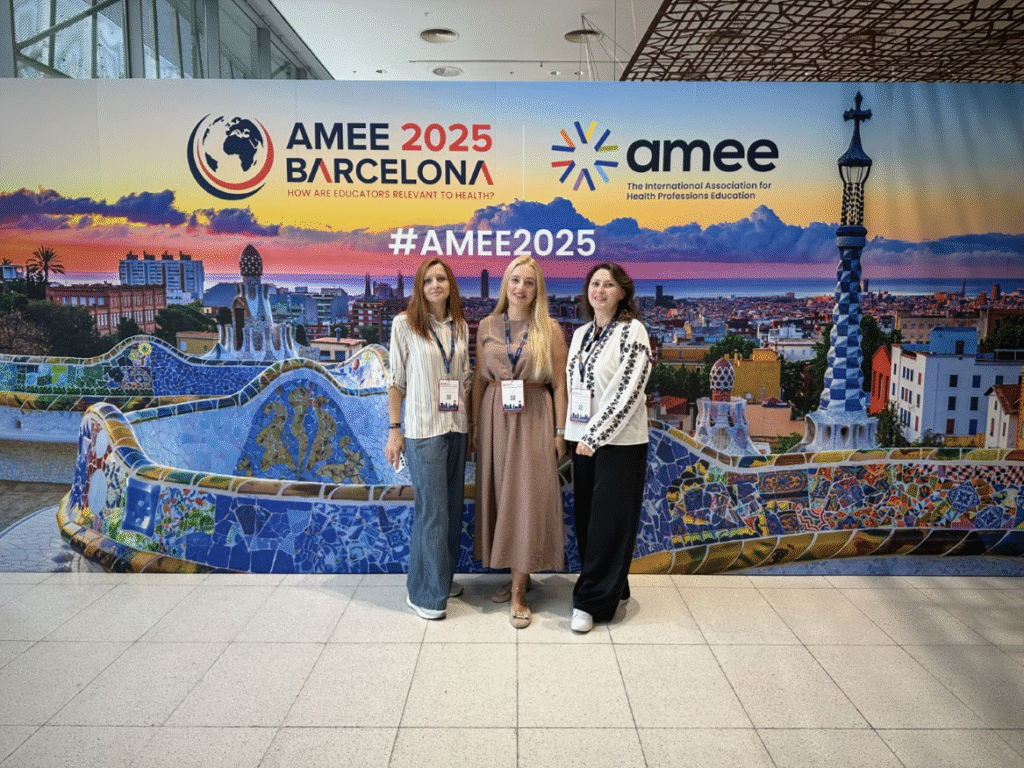
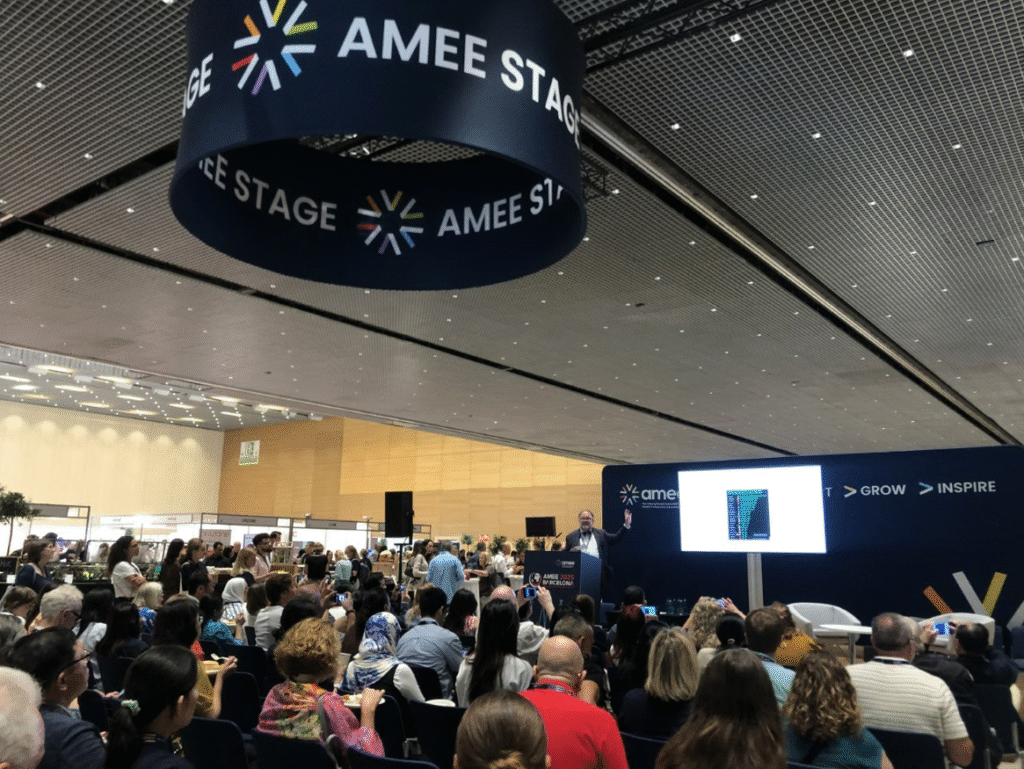
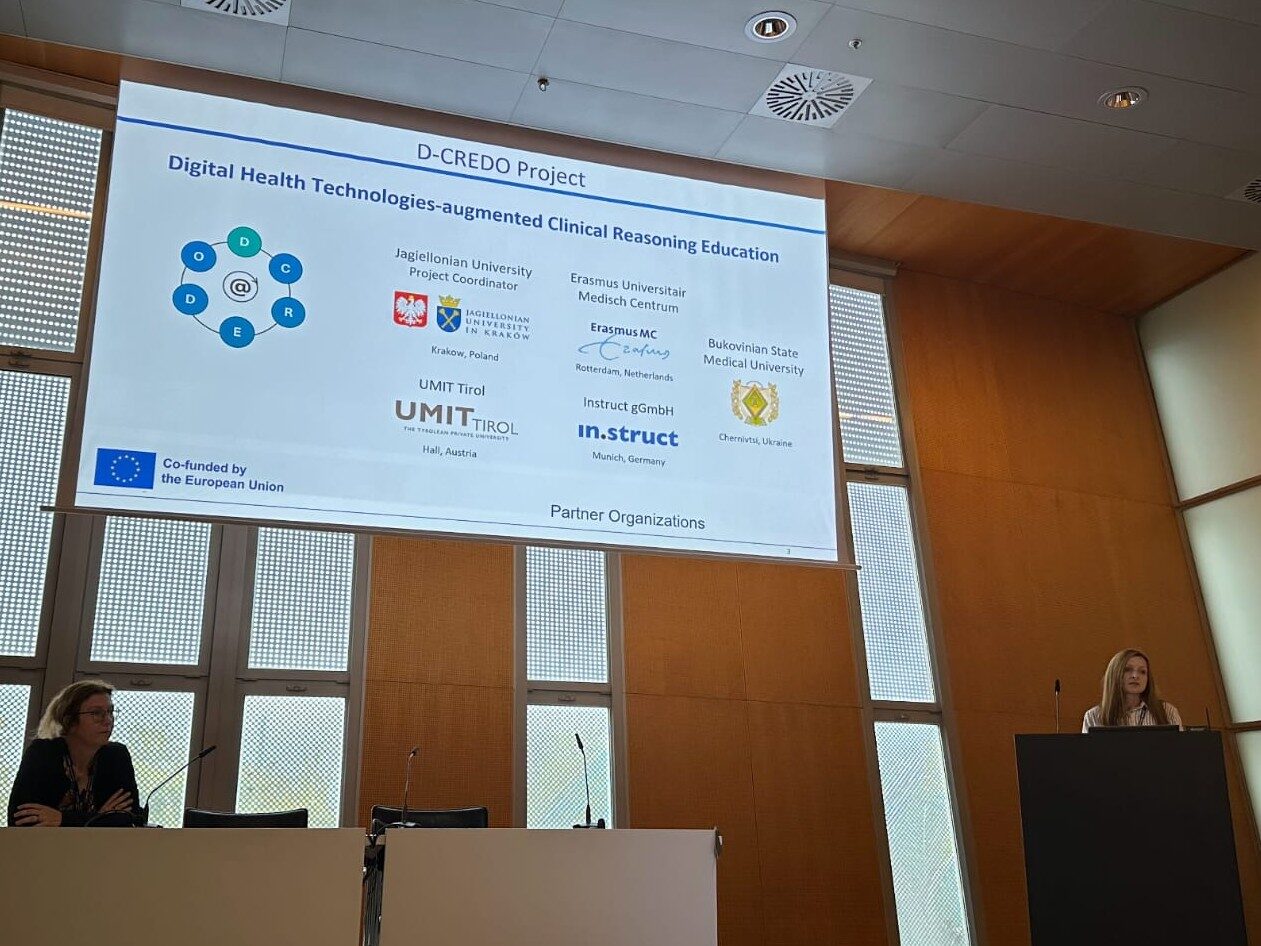
Beyond the academic program, the conference provided an opportunity to meet new colleagues, reconnect with long-time collaborators, and exchange perspectives on global challenges in medical education. The collaborative spirit of AMEE exemplified the very approach needed in health professions education: working together to ensure future healthcare professionals deliver safe, compassionate, and equitable care.
Stay connected with D-CREDO and follow our journey on LinkedIn for more updates, insights, and stories.
